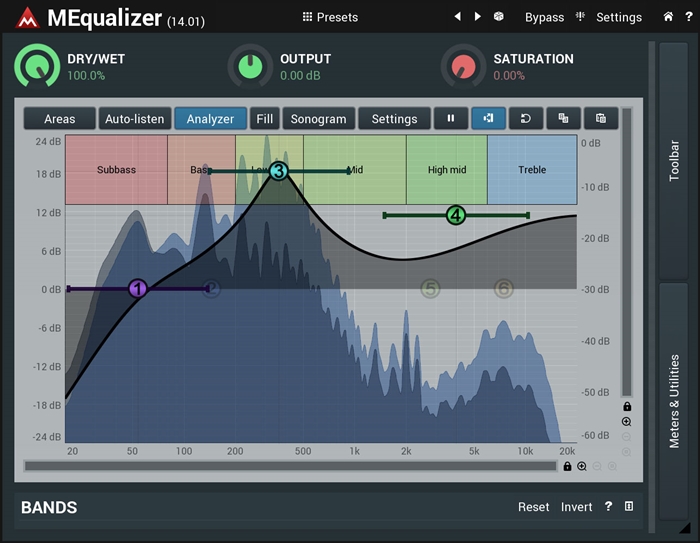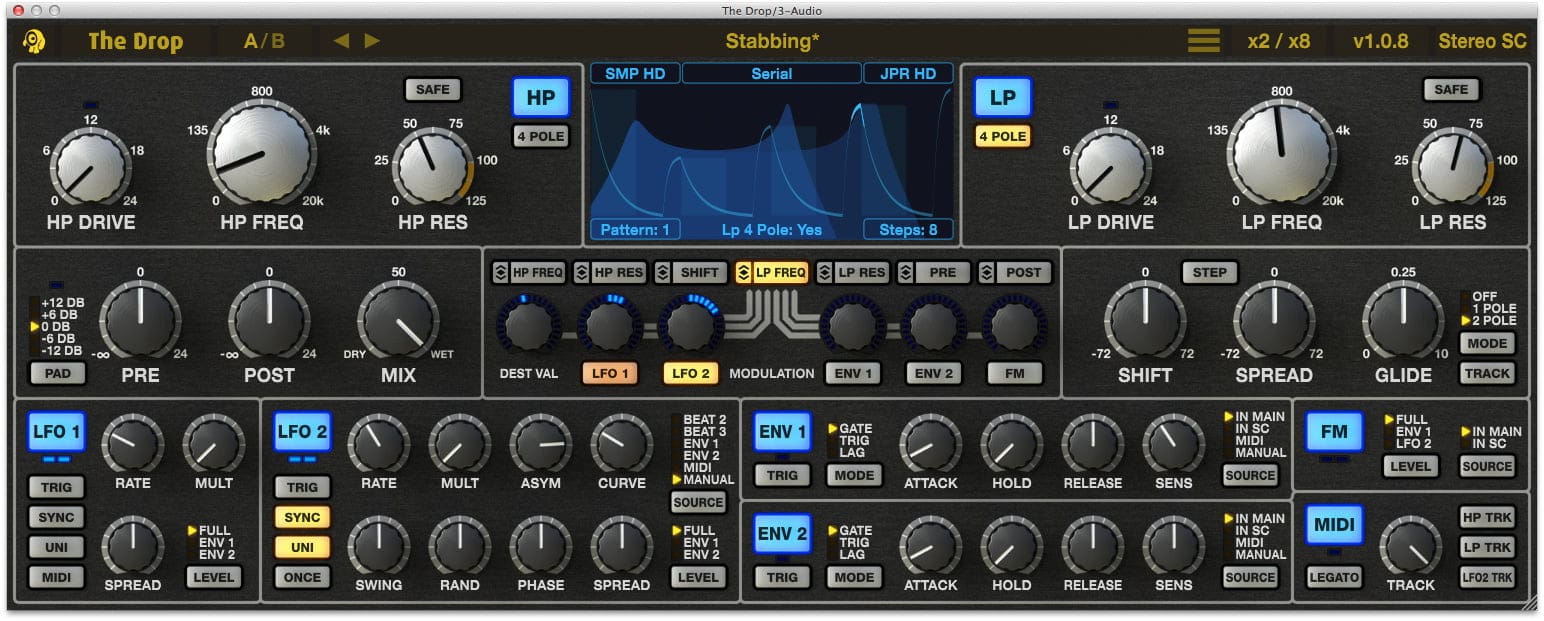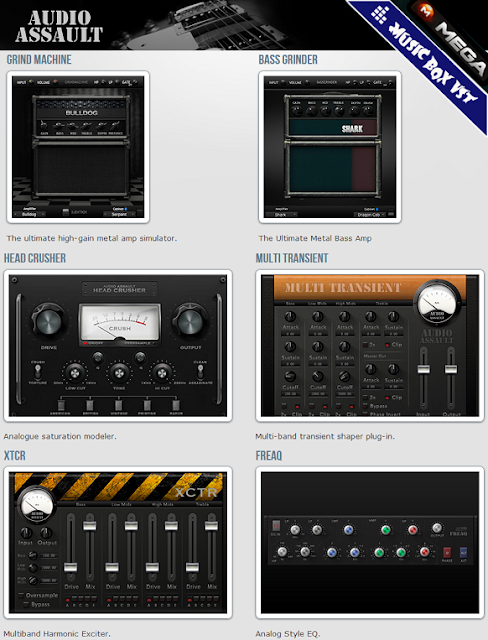-
Plugins Aax 64 Native Format Plugins For Mac카테고리 없음 2020. 1. 31. 04:06

Windows and Mac support for VSTs. When downloading VST plugins, you will need to take note if the plugin supports your operation system. While the VST format is cross platform not all plugin developers compile their plugins to support both platforms. Jun 22, 2017 - Pro Tools 11+: AAX 64bit. C: Program Files Common Files Digidesign DAE Plug-Ins (RTAS & TDM); C: Program. My plug-ins do not show up in Pro Tools. My plug-in presets are not showing up in Pro Tools on a Mac.
Is the egg and the chicken thing - right? What comes first - the new DAW version or the plugins to use in that new DAW version. Clearly developers can not see any point in releasing or even use time on AAX64 bit plugins for PT11, before PT11 is out, then again Avid won't sell any new upgrades to PT11 before there a larger number of AAX64 bit plugin available.
I just installed PT11 and are starting to 'fill it up' with the AAX64bit plugins that ARE available right now - and it looks and feel very promising. I my mind there's absolute a reason to bother. PT10 HD on HDX cards was very shaky on buggy - ProTools 11 HD on the same Mac Pro, is far more stable and it gives me way more RAM to load virtual instruments into!
So NI, can you please throw us a bone. Will you add AXX64 bit support in 3 weeks, 3 months, or end of the year? Click to expand.PT 11 is better than PT 10 every was.right now. You just can't put anything in it.lol BTW - PT 10 (regular) is no better than any other DAW. It got it's reputation from its HD version and is no where near the same except for looks. All those qualities that separates Pro Tools from other DAWs is in HD. Otherwise Ableton, Cubase, Samplitude, logic 9 etc give the vanilla version of Pro Tools a run for it's money with little or not limitations.
If there is something that vanilla PT 10/11 has over the other DAWs please let me know so I feel better about my purchase. Click to expand.Now, this was a funny and strange reply.
'no one ever asks me if I'm running pro tools' - No one asked you if someone asked you if you run pro tools. ' We are not comparing your tools vs our tools' - Did I imply that? ' Just Asking for a Progress report' - I'm no longer worried about it and stopped asking some time ago. Certain Vendors said they would be ready and when PT 11 was released, it turned out they weren't ready. It's all good, though.
I moved on from PT 11. So no word on 64-bit AAX yet? I specifically held out for a.1 release of PT11. Apparently it's up to 11.02 but my installer loaded 11.01. While I realize DAW software companies seek to control their destinies thru proprietary plugin formats, this isn't a particularly nice thing for customers to have to worry about, and it makes things more difficult for plugin developers. I wish Pro Tools offered a 32-bit bridge like Logic 9; but Logic Pro X dropped 32-bit support so we can probably expect to see that happen with other DAWs as well. Thank goodness hard drive storage is cheap and I can keep several versions of various DAWs on my Mac Pro.

So no word on 64-bit AAX yet? I specifically held out for a.1 release of PT11. Apparently it's up to 11.02 but my installer loaded 11.01. While I realize DAW software companies seek to control their destinies thru proprietary plugin formats, this isn't a particularly nice thing for customers to have to worry about, and it makes things more difficult for plugin developers. I wish Pro Tools offered a 32-bit bridge like Logic 9; but Logic Pro X dropped 32-bit support so we can probably expect to see that happen with other DAWs as well. Thank goodness hard drive storage is cheap and I can keep several versions of various DAWs on my Mac Pro. So no word on 64-bit AAX yet?


I specifically held out for a.1 release of PT11. Apparently it's up to 11.02 but my installer loaded 11.01. While I realize DAW software companies seek to control their destinies thru proprietary plugin formats, this isn't a particularly nice thing for customers to have to worry about, and it makes things more difficult for plugin developers. I wish Pro Tools offered a 32-bit bridge like Logic 9; but Logic Pro X dropped 32-bit support so we can probably expect to see that happen with other DAWs as well. Thank goodness hard drive storage is cheap and I can keep several versions of various DAWs on my Mac Pro.
Click to expand.Avid prefered not to get into all the problems of having a 32 bit bridge into a 64 bit daw. The logic bridge was not stable and not even all plugins were actually supported by it. With the changes made to PT, the change of format was unavoidable if they wanted to move forward and not be tied up by a near 20 years old code that the RTAS was. What's the biggest mind blower is to see that other companies that also have big amounts of VI (example EW) actually are AAX 64 bit ready, distributed and working with already bug fixing the early issues, and some smaller companies like toontrack also have their VI's aax 64 bit ready, but a company like NI who knew for a good amount of time now (4 years almost?) is not even ready? Heck even waves. Has finally released their aax 64 bit plugins. But the biggest joke of them all is actually Air, which used to be part of Avid, who are still coming soon.
The advent of the VST plugin is arguably the most pivotal, important development in shaping the way we make music on our computers today. When Steinberg made its VST technology freely available to any and all developers in 1997, the doors of creativity were thrown open, and before too long, virtually any studio tool could be had for little or even no money.
Plugins Aax 64 Native Format Plugins For Mac
More importantly, VST plugins could be used in any DAW that supported them, meaning that you didn't need to own a Steinberg product to take advantage of all of the new toys that soon flooded the marketplace. The VST format reigns supreme to this day, but it isn't the only format available.
There are AU, AAX and RTAS to name but a few, though we'll focus on VST and AU in this article since they're by far the most popular standards. In addition, some plugins are written for 32-bit systems, while others are coded for 64-bit systems And some for both! Your own operating system and host program (by which we mean your DAW) will determine which format you'll want to use - we'll come back to the specifics a little later, but see the handy table below for a guide to which DAWs run on PC and Mac, whether they support AU/VST2/ VST3, and whether they have a 'bit bridge' for running 32-bit plugins in their 64-bit version. Special delivery.
Most plugins are available as downloads, and this is now the delivery system of choice. Some developers provide programs that facilitate downloading, authorising and managing their plugins. Lots of plugins are delivered using installer packages with file extensions like PKG or EXE (Mac and Windows respectively). Mac users will be familiar with the DMG file that is mounted and opened like a disk with the installer or plugin contained within. Many plugins will require unlock codes, serial numbers, authorisation codes or license files, and the product's documentation should be referred to for instructions on how to use these.
Be sure to keep any codes and the like backed up in a secure location so that you can access them again in case you need to reinstall. Let's take a look at those formats again in a little more detail.
VST (effect) and VSTi (instrument) plugins are the most common, being used on Mac, Windows and even Linux machines. These are good if you need compatibility with a machine running a different OS. VST plugins are sometimes delivered in their raw DLL (Windows) or VST (Mac) format, to be copied to your plugins folder manually.
The VST format has recently been brought up to version 3, though many developers still support the older VST 2.xx format. VST3 plugins are always 64-bit-compatible, offer sidechaining options and dynamically assignable outputs. However, they dispense with the popular preset/patch and bank storage format (.fxp and.fxb, respectively), which can make transferring patches between plugins and projects trickier.
RAM it home 64-bit systems they can access more RAM than 32-bit ones and thereby allow more plugins, samples, and so on, to be loaded up at any given time. However, many plugins are still 32-bit only - especially on Windows. Often this isn't an issue, as most - if not all - modern DAWs offer both 32-bit and 64-bit versions that can exist side-by-side on the same computer. You can't run a 64-bit plugin in a 32-bit host; the reverse is also usually true, but many 64-bit DAWs have a built-in 'bridge' that can make 32-bit plugs available. If your DAW doesn't, you'll need a third-party bridge or wrapper. Beyond compatibility, is there a difference between formats? A little, yeah.
For instance, Audio Units cannot send MIDI out, meaning some plugins won't function without some workaround. In such a case, you'll be better off using a VST version, if your host supports both. Avid's AAX format is found in only one DAW: Avid Pro Tools, and it's an improvement and replacement for the older RTAS (native Pro Tools) and TDM (hardware PT) formats. Finally, Reason has its own plugin format too, Rack Extensions, which work a lot like Reason's built-in plugins, so they're dead easy to figure out. For a complete guide to installing, managing, troubleshooting and using your plugins, check out, which is on sale now.
